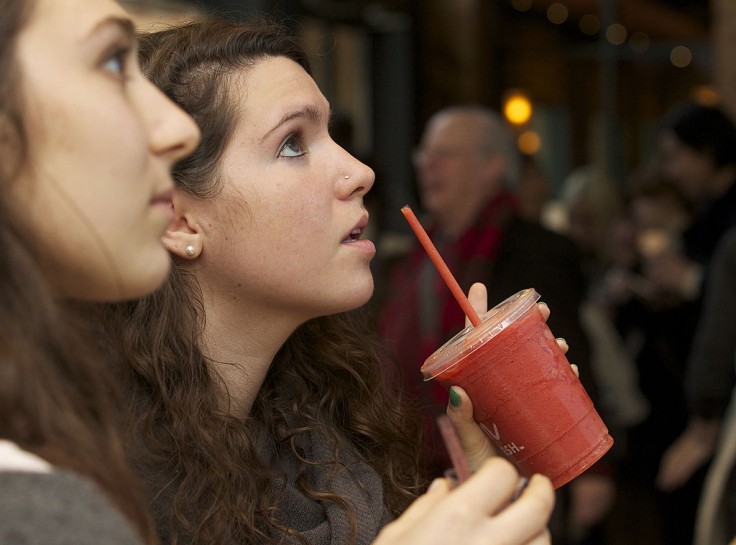
Those cold, colorful juices ordered at chain restaurants under non-coffee choices? They have caffeine content, and expert warns parents and urges them to learn more about it.
A recent TikTok video of a Starbucks barista went viral after admitting that workers of the coffeehouse "fulfill" parents' orders of Starbucks Refresher for their children even with the knowledge that the beverage contains caffeine.
Starbucks Refreshers are the popular choice of drinks parents order for their kids as they seem "safe." Tagged under Starbucks' non-coffee drinks, Refreshers, with three flavors - strawberry acai, mango dragonfruit, and pineapple passionfruit, are shaken with ice and added with real pieces of fruit.
However, according to Sweet Steep Tea Blog, every Starbucks Refresher beverage has caffeine, just not naturally occurring like a coffee drink. Starbucks itself has even stated that a grande Refresher has an estimated 45 to 55 milligrams of caffeine.
Parents To Steer Kids Away From Caffeinated Drinks
The TikTok video did not only go viral but sparked a debate on just how much caffeine intake kids and teens can have, or the bigger question of whether they should be drinking caffeinated drinks at all.
Medical toxicology physician and medical director at the National Capital Poison Center of Falls Church, Virginia, Kelly Johnson-Arbor, declared to Fox News Digital that the caffeine intake of minors these days is actually a "significant public health concern."
She shared how her own kids, ages ten and twelve, have kept informing her about their classmates and friends bringing caffeinated drinks to school. She then warned parents and the public that they should be seriously concerned about the amount of caffeine minors are consuming.
Most health professionals recommend parents steer their kids clear of these drinks, especially since only a few data tackle the effects of caffeine on kids and teens.
"Since children's brains are still developing, stimulant drugs like caffeine have the potential to have undesirable effects on brain development and behavior. After six months of age, children are able to metabolize caffeine as effectively as adults, but the results of some studies suggest that caffeine is associated with adverse effects in children, including headaches, sleep disturbances and changes in blood pressure," Johnson-Arbor explained.
Read More: Caffeine Gains Popularity Among Kids
Caffeinated Teas, Juices Unsafe for Children
The American Academy of Pediatrics (AAP) has also emphasized that stimulants like caffeine "have no place in the diet of children and adolescents." This was noted in a research on energy drinks that was published by the U.S. Centers for Disease Control and Prevention, further stressing that the stimulants in caffeinated drinks can have harmful effects on kids and teens' nervous systems.
Moreover, the American Academy of Child and Adolescent Psychiatry (AACAP) encourages parents and caregivers to put minors on a "complete caffeine avoidance" as much as possible as "there is no proven safe dose of caffeine for children."
Starbucks' competitors, like Dunkin' Donuts and Panera Bread, serve caffeinated drinks as well. Panera has been transparent about their drinks' caffeine content, while Dunkin' does not say.
Danny Dorsey, of Menifee, California, the CEO at Everlast Recovery Centers, urges parents to read labels carefully to protect and limit their children's consumption of drinks with caffeine.
"Caffeine can lead to dehydration, which can be particularly dangerous during physical activity or hot weather. Educating children on the potential risks of caffeine consumption can also help them make healthier choices," he stated. He continued suggesting that parents should offer healthier alternatives like water, milk, and 100 percent fruit juice for their young ones.
Related Article: Is It Okay For Teenagers To Drink Coffee?